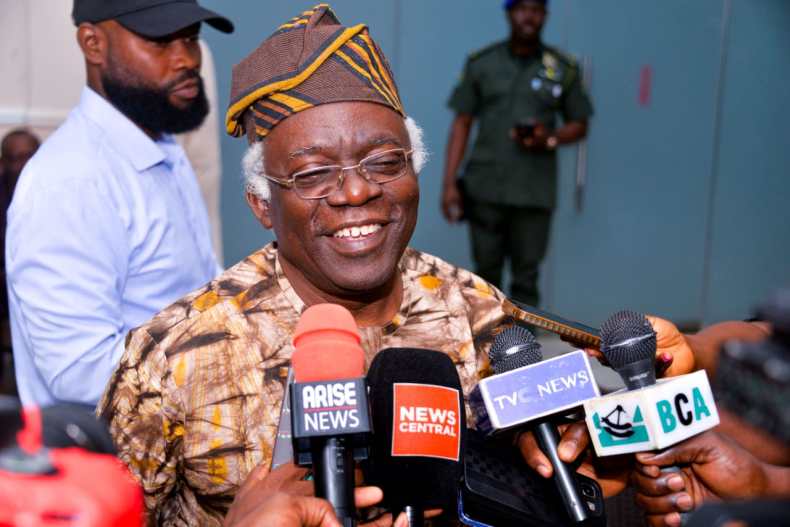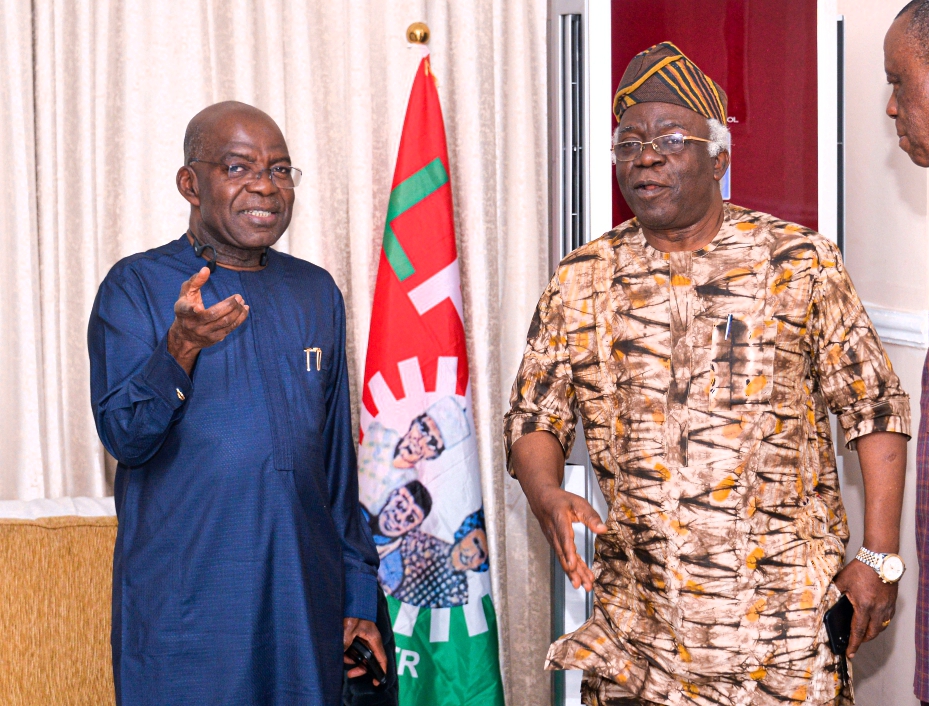Human Rights Lawyer and Senior Advocate of Nigeria, Femi Falana, has called on the Federal Government to ensure greater access to justice for ordinary citizens, noting that the country’s judicial system currently serves mainly the elite.
Falana made the call on Wednesday in Nvosi, Isiala Ngwa South LGA of Abia State, while speaking with journalists shortly after a closed-door meeting with Governor Alex Otti.
He criticised the notion that the judiciary is the last hope of the common man, insisting that “the common man has no means to go to court.”
“Access to justice by the people, that is what the judicial system needs. Right now we have a lot of access to justice by politicians. Only their cases move in court because political cases are time-bound.
“Other cases for me must be time-bound. People make the mistake of saying the judiciary is the last hope of the common man. The common man has no means to go to court.
“The judiciary is the last hope of the elite, the bourgeoisie,” Falana said.

The human rights lawyer therefore urged governments at all levels to promote alternative dispute resolution mechanisms, which he described as rooted in African traditions.
Falana, who cited the example of a South-South state where palace law reports exist, stressed the need to strengthen customary courts and traditional dispute resolution mechanisms.
“If you want the ordinary people to benefit from the judicial system, you must promote alternative dispute resolution.
“The majority of our people do not go to Western courts, they patronise traditional rulers and community leaders to solve problems.
“So the governments of our country, including that of Abia State, must also reform the customary courts, palaces of traditional rulers where our people access daily to resolve their disputes. I think there is a state in the South where you have palace law reports.
“What they now call alternative dispute resolution is actually African dispute resolution. Before the colonialists came, our people had nothing to do with adjudication.
“The traditional ruler would pronounce justice, and there was no provision for appeal. But under the Western system, you could be in court for 20, 30, 40 years. That is alien to our traditional judicial system,” the human rights lawyer argued.
Speaking on his visit to Governor Otti, Falana explained that he was in Abia State for a court case and decided to pay a courtesy call on the Governor, whom he described as his comrade.
“It wouldn’t be proper if I didn’t inform His Excellency that I’m in his state. As they say in my place, you don’t pass through the Oba’s palace without paying your obeisance,” Falana said.
Although he declined to reveal the details of their discussion, the human rights lawyer commended Governor Otti’s performance since assumption of office.
“I’ve been coming here since the inauguration of the civilian government in 1999. And I can say without any fear of contradiction that I’ve seen signs of governance which were not there before. I’ve seen evidence of physical development. I’ve also spoken to people, and I’ve had very positive comments from them,” he noted.
Falana urged the Otti-led administration to continue to keep the masses at the centre of governance to ensure they benefit from democracy dividends.
“I’ve gone around. I’ve seen good schools, good hospitals and I am very confident that the government can do much more than it has done.
“Part of my discussion with His Excellency is how to intensify these efforts and ensure that the people remain the centre of the administration. The people must benefit from the dividends of democracy,” he stated.
When asked to comment on the court case involving the leader of the Indigenous People of Biafra (IPOB), Falana declined comments on the matter saying, “I cannot comment on pending proceedings.”
“That is a matter that should be sorted out outside the courtroom. For me, it’s a political case. And if you have a situation where some governments are negotiating with bandits or other criminal elements, there can be no basis for not having that matter resolved politically.”
By Amarachi Uzoukwu

























